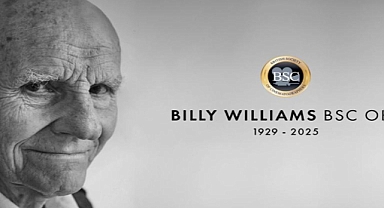These orders stem from two executive actions signed by President Donald Trump on his first day back in office, targeting DEI programs within federal institutions.
One such directive was sent by Jason Bonander, Chief Information Officer of the Centers for Disease Control and Prevention (CDC), on Friday morning. "Pronouns and any other information not permitted in the policy must be removed from CDC/ATSDR employee signatures by 5 p.m. ET today," the message stated. Employees at the Department of Transportation and the Department of Energy also received similar notices, instructing them to remove pronouns from official documents, including government grant applications and email communications.
The directive aligns with Trump’s executive orders aimed at eliminating what his administration has labeled "radical and wasteful DEI programs" and reinstating "biological truth in federal government operations." The orders emphasize removing DEI-related language from all federal discourse, official publications, and communications.
federal employees at affected agencies, including the Department of Health and Human Services (HHS), CDC, and the Department of Energy, were not immediately available for comment. Meanwhile, internal memos obtained by ABC News outline specific instructions on how to modify email signatures to comply with the new policy.
This development has sparked concern among some long-time federal employees. One CDC staff member, speaking anonymously due to potential repercussions, voiced frustration: "In over a decade of working at the CDC, I have never been told what I can or can’t include in my email signature."
Additionally, a memo issued Wednesday by the Office of Personnel Management (OPM) instructed federal agencies to disable features in their email systems, such as Outlook, that prompt users for pronouns.Government Communication Policies Under Scrutiny
With these new directives, the administration continues its rollback of DEI programs, raising concerns among some federal employees and advocacy groups. While the full impact of these changes remains to be seen, the shift signals a significant policy reversal from the previous administration's approach to inclusivity and representation in government communications.
One such directive was sent by Jason Bonander, Chief Information Officer of the Centers for Disease Control and Prevention (CDC), on Friday morning. "Pronouns and any other information not permitted in the policy must be removed from CDC/ATSDR employee signatures by 5 p.m. ET today," the message stated. Employees at the Department of Transportation and the Department of Energy also received similar notices, instructing them to remove pronouns from official documents, including government grant applications and email communications.
The directive aligns with Trump’s executive orders aimed at eliminating what his administration has labeled "radical and wasteful DEI programs" and reinstating "biological truth in federal government operations." The orders emphasize removing DEI-related language from all federal discourse, official publications, and communications.
federal employees at affected agencies, including the Department of Health and Human Services (HHS), CDC, and the Department of Energy, were not immediately available for comment. Meanwhile, internal memos obtained by ABC News outline specific instructions on how to modify email signatures to comply with the new policy.
This development has sparked concern among some long-time federal employees. One CDC staff member, speaking anonymously due to potential repercussions, voiced frustration: "In over a decade of working at the CDC, I have never been told what I can or can’t include in my email signature."
Additionally, a memo issued Wednesday by the Office of Personnel Management (OPM) instructed federal agencies to disable features in their email systems, such as Outlook, that prompt users for pronouns.Government Communication Policies Under Scrutiny
With these new directives, the administration continues its rollback of DEI programs, raising concerns among some federal employees and advocacy groups. While the full impact of these changes remains to be seen, the shift signals a significant policy reversal from the previous administration's approach to inclusivity and representation in government communications.








